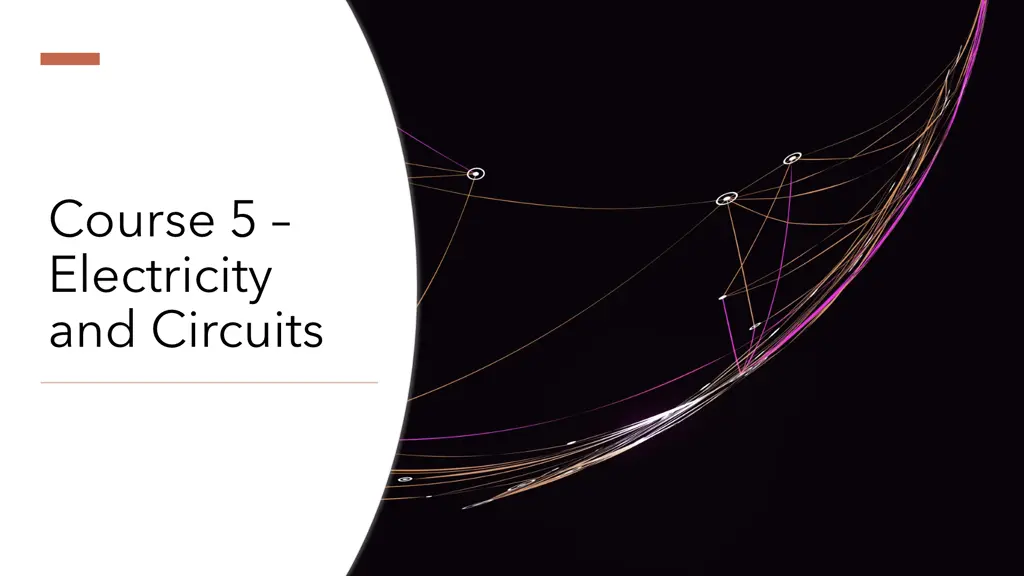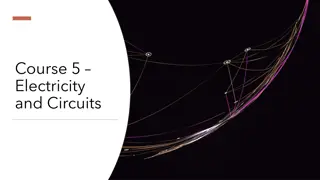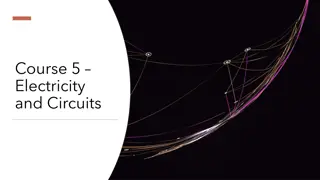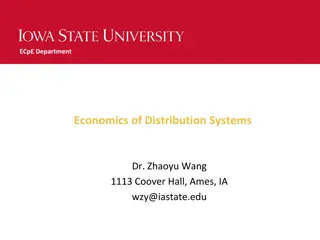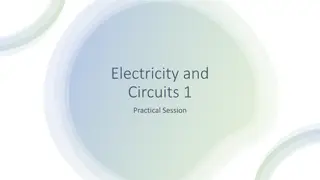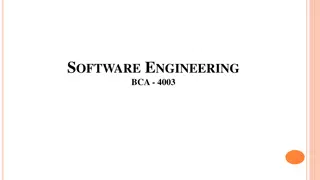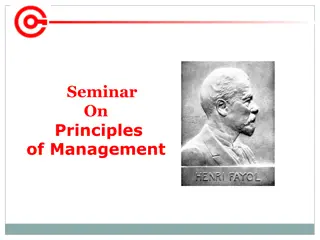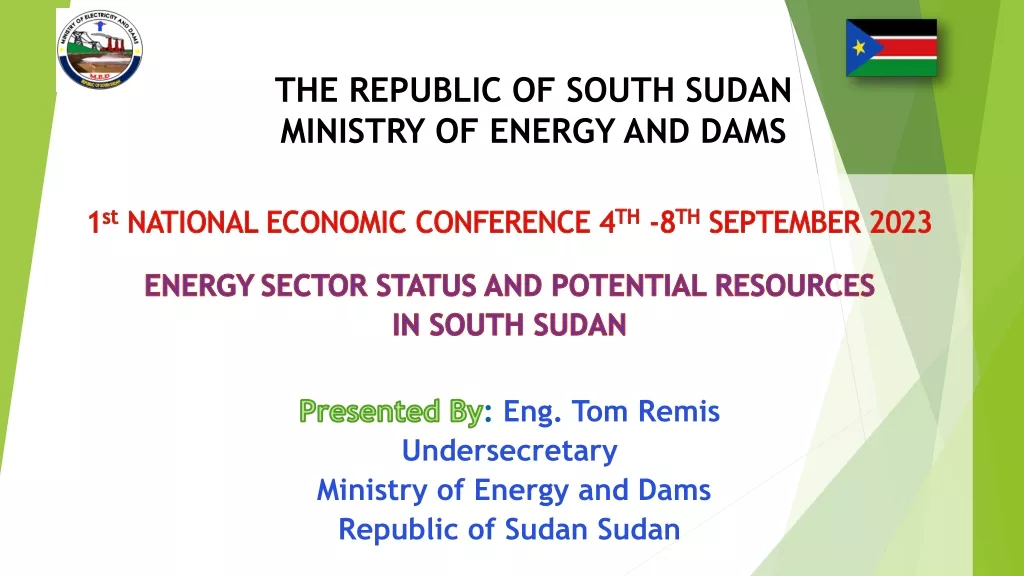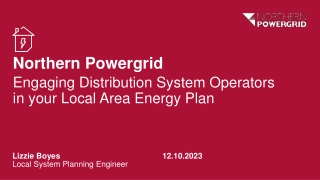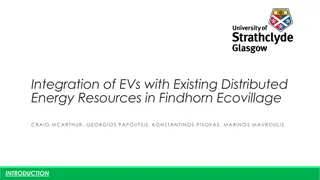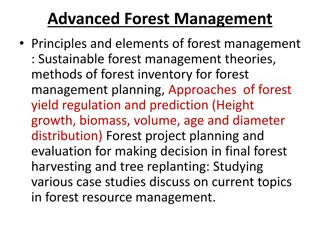Understanding Electricity: Basics and Engineering Principles
This course explores electrical quantities, charges, currents, voltages, resistances, and Ohm's Law to build a solid foundation in electricity and circuits, fostering an engineering mindset.
Download Presentation
Please find below an Image/Link to download the presentation.
The content on the website is provided AS IS for your information and personal use only. It may not be sold, licensed, or shared on other websites without obtaining consent from the author. Download presentation by click this link. If you encounter any issues during the download, it is possible that the publisher has removed the file from their server.
Presentation Transcript
Course 5 Electricity and Circuits
Objectives Electrical Quantities Charge Voltage Current Resistance Conductance Power Energy Ohm s Law
Relevancy To understand the basics of electricity To promote an engineering mindset
Charge Electrical property of electrons and protons Can be compared to volume of water Base unit is coulomb 1 coulomb = 6.25 1018????????? Symbol for charge = Q Coulomb can be written as a C
Current The flow of electric charge (Merriam-Webster, n.d.) The flow of electrons in a specific direction Electron flow can happen through all states of matter Symbol for current is I ? ???? (?) ????(?) Measured as 1 coulomb/second or ??????? ? =
Current (Krol, 2020)
Conventional Flow vs Electron Flow Conventional flow is positive to negative Electron flow is negative to positive
Voltage Electric potential or potential difference expressed in volts (Merriam-Webster, n.d.) Voltage is the electrical force that pushes the electrons Also called electromotive force or potential difference
Voltage Symbol is V Base unit is volts ?????? (?) ? ???? (?) Can be expressed as ??????? ? = Can has polarity, such as positive or negative
Voltage Analogy (Krol, 2020)
Voltage In your own words, describe voltage
Voltage Give your own analogy for voltage
Voltage Generation Voltage can be generated by converting one form of energy into electrical energy, such as: Mechanical energy Electric chemical Heat Crystals Solar cells
Voltage Generation How do you think voltage is generated from each of the following: Mechanical energy Electric chemical Heat Crystals Solar cells
Resistance The opposition a material offers to current All materials naturally offers resistance which is converted to heat energy Symbol is R Base unit of ohms ( ) Every material has a specific resistance
Resistance Conductors generally have low resistance to current Insulators have high resistance to current Superconductors have no resistance to current Semiconductors have medium resistance to current
Resistance Resistance for materials change in relation to its temperature, known as temperature coefficient of resistance A material s resistance is determined by its resistivity or specific resistance, which is measurement of how much resistance is present /unit of length Resistance for any given material can be calculated by ?????????? ? = ???? (?) ??????????? ? ????? (?)
Conductance The ability to conduct current Inverse of resistance Denoted with the symbol G 1 ??????????? ? = ?????????? (?)
Power A rate of doing work or using energy Base unit is ????? ???or watt ?????? (?) ???? (?) ????? ? =
Energy The ability to do work Base unit is watt-second or joule ?????? ? = ????? ? ???? (?) 1 joule is = 1 wattsecond 1kWh = 3.6 million J
Power and Energy Example A solar panel array produced 3.2 kWh today Is this power or energy?
Power and Energy Example A solar panel array produced 3.2 kWh today Is this power or energy? This is energy Remember that energy is total production with a time component
Power and Energy Example A solar array produces 18 kWh in 3 hours What is the power production of the array?
Power and Energy Example A solar array produces 18 kWh in 3 hours What is the power production of the array? The power production is 6 kW
Electricity vs Water Comparison Charge = Volume of water Voltage = Pressure Current = Pipe size Resistance = Constriction or obstruction Power = Reservoir (when opened = instantaneous energy, which is power) Cell/battery = Reservoir (stored energy)
